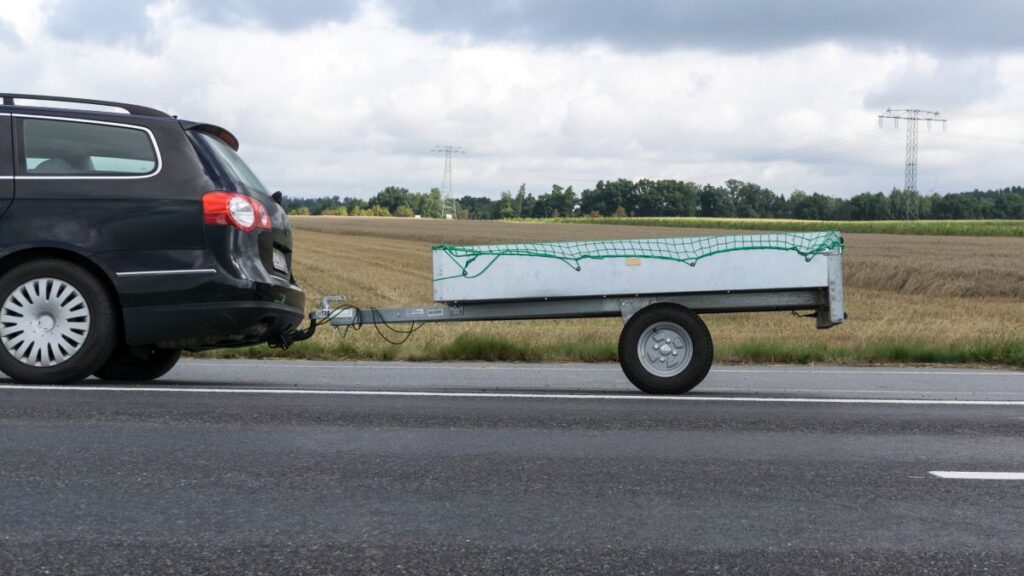Knowing how to load and distribute weight on your trailer can make or break your travel plans. The right weight distribution can mean the difference between a smooth ride and handling difficulties. Below are insights into the optimal load balance for your trailer.
The Importance of Weight Distribution
Balanced weight distribution is the key to safe trailer transport. When the weight is evenly spread, your vehicle will handle better. This will prevent the trailer from swaying and improve your ability to control the vehicle.
Place the heaviest items at the trailer’s front for more stability on the road. This setup prevents hazards like tipping or jackknifing that occur due to imbalanced loads.
Positioning is also important when it comes to loading your trailer. You want to have about 60 percent of the load’s weight in the front half of the trailer.
Properly loading and distributing weight helps to ensure your trailer provides a smooth ride because you can maintain control over the towing vehicle and the trailer itself. Keep the center of gravity low by placing heavier items on the floor. This strategy prevents unnecessary strain on your hitch and vehicle.
Secure the Cargo
Another important tip for loading and distributing the weight on your trailer is securing the cargo. It’s not just about throwing on the straps and hoping for the best; you need to tightly fasten each item to prevent shifting during transit.
Movement within the trailer results in imbalances, swaying, and poor handling. Use ratchet straps or rope to keep the cargo in place.
Adjust the Tongue Weight
The tongue weight should be 10 to 15 percent of your trailer’s total weight. An improper tongue weight can cause fishtailing or make steering difficult.
You can adjust this by moving items towards or away from the trailer’s front to keep the weight balanced. While loading the cargo, regularly check the tongue weight to guarantee a stable ride.
Use an Axle for an Even Load
The trailer’s axle plays a vital role in distributing weight. Aligning the load evenly across the axle ensures that the trailer remains balanced. If there’s concentrated weight at one end, it throws off the vehicle’s stability. Use the axle as a central guide as you’re loading and shifting items to achieve balanced cargo and avoid unnecessary wear on the vehicle’s tires while driving.
Proper loading and distributing of weight are necessary for a safe, smooth journey. Be sure to balance the cargo on your trailer with these best practices in mind.










 Deering Estate
Deering Estate
 Massage Envy South Miami
Massage Envy South Miami
 Calla Blow Dry
Calla Blow Dry
 My Derma Clinic
My Derma Clinic
 Sushi Maki
Sushi Maki
 Sports Grill
Sports Grill
 The Healthy Kitchen
The Healthy Kitchen
 Golden Rule Seafood
Golden Rule Seafood
 Malanga Cuban Café
Malanga Cuban Café

 Kathleen Ballard
Kathleen Ballard
 Panter, Panter & Sampedro
Panter, Panter & Sampedro
 Vintage Liquors
Vintage Liquors
 The Dog from Ipanema
The Dog from Ipanema
 Rubinstein Family Chiropractic
Rubinstein Family Chiropractic
 Your Pet’s Best
Your Pet’s Best
 Indigo Republic
Indigo Republic




 ATR Luxury Homes
ATR Luxury Homes


 2112 Design Studio
2112 Design Studio
 Hamilton Fox & Company
Hamilton Fox & Company
 Creative Design Services
Creative Design Services
 Best Pest Professionals
Best Pest Professionals
 HD Tree Services
HD Tree Services
 Trinity Air Conditioning Company
Trinity Air Conditioning Company
 Cisca Construction & Development
Cisca Construction & Development
 Mosquito Joe
Mosquito Joe
 Cutler Bay Solar Solutions
Cutler Bay Solar Solutions


 Miami Royal Ballet & Dance
Miami Royal Ballet & Dance
 Christopher Columbus
Christopher Columbus
 Pineview Preschools
Pineview Preschools
 Westminster
Westminster
 Carrollton
Carrollton
 Lil’ Jungle
Lil’ Jungle
 Frost Science Museum
Frost Science Museum
 Palmer Trinity School
Palmer Trinity School
 South Florida Music
South Florida Music
 Pinecrest Orthodontics
Pinecrest Orthodontics
 Dr. Bob Pediatric Dentist
Dr. Bob Pediatric Dentist
 d.pediatrics
d.pediatrics
 South Miami Women’s Health
South Miami Women’s Health

 The Spot Barbershop
The Spot Barbershop
 My Derma Clinic
My Derma Clinic




 Miami Dance Project
Miami Dance Project

 Rubinstein Family Chiropractic
Rubinstein Family Chiropractic
 Indigo Republic
Indigo Republic

 Safes Universe
Safes Universe
 Vintage Liquors
Vintage Liquors
 Evenings Delight
Evenings Delight





 Atchana’s Homegrown Thai
Atchana’s Homegrown Thai
 Baptist Health South Florida
Baptist Health South Florida

 Laser Eye Center of Miami
Laser Eye Center of Miami
 Visiting Angels
Visiting Angels
 OpusCare of South Florida
OpusCare of South Florida

 Your Pet’s Best
Your Pet’s Best





 HD Tree Services
HD Tree Services
 Hamilton Fox & Company
Hamilton Fox & Company


 Creative Design Services
Creative Design Services